- Advertisement -
ISLAMABAD, Jun 19 (APP):National Peace Festival 2025’s second day spotlighted crucial themes of inclusive peacebuilding, with thought-provoking discussions on education, gender equality, interfaith dialogue, and digital resilience at the National Skills University Islamabad.
Organized by the Shaoor Foundation for Education and Awareness (SFEA), the event convened academics, policymakers, and community leaders to address strategies for countering violent extremism and fostering social cohesion.
Addressing the ceremony, Vice Chancellor of Fatima Jinnah Women’s University Dr. Bushra Mirza underscored the need for women and gender-diverse leadership in creating inclusive environments.
She said that their active participation in leadership positions can drive meaningful change, promote equality, and foster a culture of diversity and social cohesion, ultimately leading to more peaceful and resilient communities.”
She emphasized the need for universities to proactively foster inclusive environments that cultivate leadership and encourage community engagement, providing students with opportunities to grow and contribute positively to society.
Vice Chancellor of National Skills University, Dr. Muhammad Mukhtar, underscored the pivotal role of skills-based education in countering radicalization.
He said that by imparting digital literacy and critical thinking skills, educational institutions can empower youth to make informed decisions and resist extremist ideologies.
He commented that this approach fosters a culture of peace, tolerance, and resilience, enabling young people to contribute positively to society.
He noted that vocational, digital, and critical thinking skills equip young people to become peacebuilders within their communities, fostering resilience against social polarization and violent.
“Skills-based education is crucial for promoting peace and stability in communities, and ultimately, the nation”, he stated. Assistant Director of the Federal Investigation Agency (FIA) Saqlain Tajammal highlighted the escalating threat of online radicalization, outlining the agency’s efforts to combat it.
He said digital literacy campaigns and collaboration with tech platforms to create safer online spaces, protecting vulnerable individuals from extremist ideologies and promoting a more secure digital environment.
He shared how FIA is increasingly relying on digital literacy campaigns, cyber-monitoring systems, and public outreach to prevent the spread of extremist narratives online.
He stressed the importance of collaboration between civil society, tech platforms, and law enforcement to create safer digital spaces for youth.
Dr. Amber Javid of NACTA highlighted youth-driven initiatives to counter violent extremism, emphasizing national strategies that empower young people to promote peace and tolerance.
She underscored the importance of engaging youth in prevention efforts, leveraging their energy and creativity to build resilient communities.
As the festival heads into its final day, it continues to spotlight Pakistan’s commitment to peace, dignity, and democratic resilience through the collective efforts of its academic institutions, civil society, and young peacebuilders.

